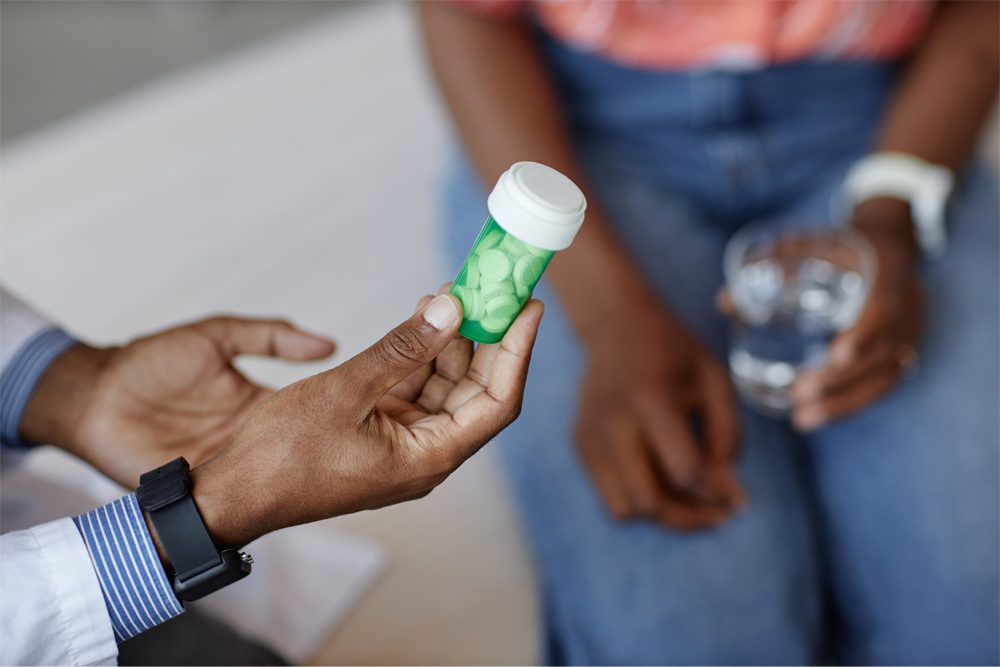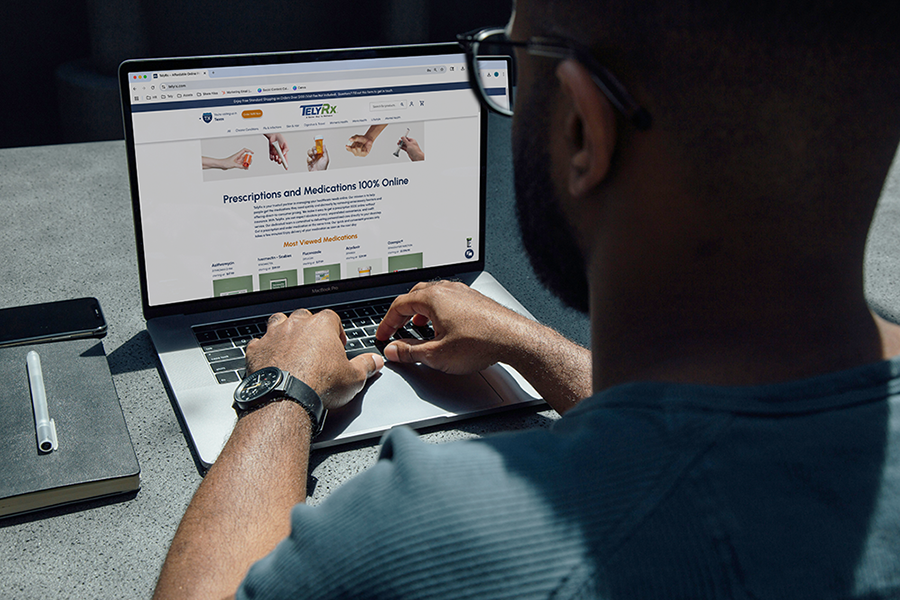How to Get a Legitimate ESA Letter (And Avoid the Fakes That Could Get You Evicted)
Reviewed by Ashley Robinson, Pharmacy Manager for TelyRx

Table of Contents
Securing housing for your Emotional Support Animal (ESA) should feel like a relief. After all, it’s an official recognition of the bond between you and your furry friend that helps you manage your mental health. But what happens when you submit your ESA letter to your landlord, only for them to find the provider isn’t licensed in your state, or worse, doesn’t actually exist? Suddenly, you discover the document you paid good money for is fraudulent, and your housing is now at risk.
This scenario happens more frequently than it should. The internet is flooded with ESA letter scams targeting people who genuinely need support but don’t know how to get ESA letter documentation from a legitimate provider or how to recognize fake ESA letter warning signs.
Your pet is non-negotiable—they help you manage your anxiety, depression, or PTSD. Research shows that 88% of ESA owners report significant positive mental health benefits, and ESAs help reduce healthcare costs—with veterans’ ESAs alone contributing $688 million in annual PTSD treatment savings. An ESA letter protects your right to live with your support animal.
Getting a valid ESA letter online isn’t complicated, but it does require following specific steps. Skip one, and you risk rejection, legal complications, and losing the housing protections you’re legally entitled to. This guide explains the ESA letter requirements, the ESA letter red flags to avoid, and why shortcuts almost always cost you in the long run.
what an ESA letter is (and what it isn't)
An Emotional Support Animal letter is a formal document from a licensed mental health professional that confirms two things: you have a mental or emotional condition, and your animal helps alleviate at least one symptom associated with that condition.
Under the Fair Housing Act, landlords must provide reasonable accommodation when you present a legitimate ESA letter—even in buildings with no-pet policies or breed restrictions.
But here’s where the confusion starts: ESA letters protect your housing rights; they don’t grant your pet public access rights. Unlike service dogs, your emotional support animal cannot accompany you into restaurants or grocery stores. Also, airlines are no longer required to accommodate ESAs. Most treat them as regular pets, which means pet fees and carrier requirements apply.
Lastly, there’s no such thing as an “official ESA registry” or “ESA certification.” Any site offering instant registration or a certificate is selling something with zero legal weight. The only thing that matters is a properly formatted letter from a qualified mental health professional who has actually evaluated you.
the non-negotiables: what your ESA letter must include

A legitimate ESA letter isn’t just any note from a provider; it must contain the following specific elements. If it’s missing any of these, it won’t hold up when your landlord verifies it:
Verifiable provider credentials
The letter must come from a mental health professional licensed in your state—a psychiatrist, psychologist, clinical social worker, or therapist. Their full name, professional title, license number, state of licensure, and contact information (phone, email, address) must be clearly stated.
Current assessment date
The letter should be dated within the past 12 months. Mental health needs change, and landlords can reasonably request updated documentation. Any letter claiming to be valid “for life” is a red flag.
Confirmation of diagnosis
The letter must state that you have a diagnosable mental or emotional condition recognized in the DSM. Since your specific diagnosis is protected by HIPAA, it doesn’t need to be named, but the letter must confirm that a condition exists.
The animal-symptom connection
The letter must explain that your emotional support animal helps alleviate at least one symptom of your condition. This establishes the legal basis for accommodation.
A clear request for accommodation
The letter must explicitly request housing accommodation under the Fair Housing Act. This is the language that legally requires your landlord to accommodate your ESA.
Professional presentation
Official letterhead, proper grammar, and a professional signature all signal legitimacy. Generic templates or automatically generated letters won’t hold up.
how to get a valid ESA letter (step by step)
Getting a legitimate ESA letter isn’t instant, but the process is straightforward:
Step 1: Find a qualified professional licensed in your state.
Start with your current therapist or psychiatrist if you have one. If you don’t, TelyRx connects you with licensed physicians in your state who understand ESA evaluations and Fair Housing Act requirements.
Step 2: Complete a clinical evaluation.
Once you’ve connected with a qualified provider, they’ll assess your symptoms, mental health history, and the specific role your ESA plays in managing your condition. This evaluation typically involves a telehealth session, a detailed questionnaire, or both—but it requires real clinical judgment. Any platform that promises “instant approval” is a scam.
Step 3: Review the letter carefully.
Once your provider completes the evaluation, they’ll issue your ESA letter. Check that it includes the elements listed above, and confirm the license number and contact information are current and verifiable.
Step 4: Submit to your landlord or housing authority.
Present the letter when requesting accommodation. Your landlord can verify the provider’s license and credentials, but remember, they cannot ask you to disclose details about your specific diagnosis or medical history.
ESA letter red flags that guarantee rejection

Most landlords can spot fake ESA letters. Here are the things most likely to trigger rejection:
Instant approval. If you received a letter minutes after filling out a form, it’s likely invalid. Real evaluations require time.
- Vague or missing credentials. No license number, no state of licensure, or unclear contact information are sure signs of a fake.
- Out-of-state license. The provider must hold an active license in the state where you’re seeking housing.
- “Permanent” guarantees. Legitimate letters reflect a current assessment and typically require annual renewal.
- Fake registries. Any site offering “official ESA registration,” “certification,” or “ID cards” is a scam. These don’t exist and have no legal value.
the cost of using fake letters
When landlords discover fraudulent ESA documentation—and they do—the consequences are real. You lose legal protections you might have qualified for with a legitimate ESA letter. Your credibility takes a hit, making future accommodation requests much harder. Housing denials are common. Eviction is possible.
Fake letters also damage the system for people with genuine ESA needs. Each fraudulent letter makes landlords more skeptical of every request. The reality is that obtaining a legitimate ESA letter isn’t significantly harder or more expensive than buying a fake one. Working with licensed professionals means your documentation will actually hold up.
your path to legitimate ESA documentation

If you genuinely need an emotional support animal, you deserve housing protections that actually work. TelyRx can connect you with a licensed physician in your state who specializes in ESA evaluations and can provide valid ESA letter online documentation when clinically appropriate.
Getting it right the first time means you don’t have to worry whether your documentation will hold up under verification.
ESA Letter
Our Emotional Support Animal (ESA) Letters provide the essential documentation needed to designate your pet as an emotional support animal, allowing you to keep your comforting companion at home or while traveling without hassle.
common questions about ESA letters
Must I have a therapist session to get an ESA letter?
Yes. A legitimate ESA letter requires an actual evaluation by a licensed mental health professional. This evaluation can be done through telehealth, which is completely valid. The key is to have a qualified professional review your mental health condition and determine whether an ESA provides therapeutic benefit. Websites offering instant letters after a brief questionnaire are selling documentation that can be rejected.
How often must I renew an ESA letter?
Most landlords and housing authorities expect ESA letters dated within the past 12 months. Mental health needs evolve, making annual renewal standard practice to confirm the continued therapeutic need for the animal.
Can a landlord reject my ESA request?
Under the Fair Housing Act, landlords must provide reasonable accommodation when presented with a valid letter. However, they can reject requests if documentation is fraudulent, expired, or missing required elements. They can also deny accommodation if your animal poses a genuine safety threat or would cause property damage exceeding normal wear and tear.
What’s the difference between an ESA and a service animal?
Service animals receive specialized training to perform specific tasks—guide dogs for the blind, seizure alert dogs, mobility assistance dogs. As such, they have public access rights under the ADA and can go into restaurants and stores.
Emotional support animals provide therapeutic benefit through companionship and don’t require specialized task training. They don’t have public access rights but are protected for housing purposes under the Fair Housing Act.
What mental health conditions justify an ESA?
Most diagnosable mental health conditions can justify an ESA, such as anxiety disorders, depression, PTSD, panic disorder, bipolar disorder, and others recognized in the DSM. What matters is that a licensed mental health professional evaluates your condition and confirms that your animal provides genuine therapeutic benefit. They don’t have to disclose your specific diagnosis.
Disclaimer
This blog post is for informational purposes only and does not constitute medical advice, diagnosis, or treatment. The content provided here is not a substitute for professional medical advice, consultation, or care from a qualified healthcare provider. Always seek the guidance of your physician or another licensed health professional with any questions you may have regarding a medical condition or treatment. Do not disregard or delay seeking professional medical advice based on information read on this site. Learn more about our editorial standards here.



















